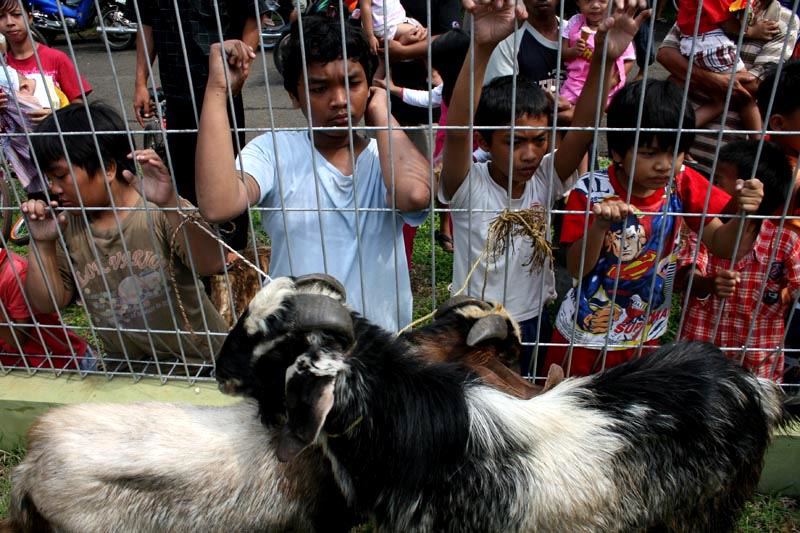The lead up to Idul Adha in Jakarta is an interesting time. Unlike ahead of Idul Fitri when millions leave the cities to return home for the holiday and malls and shopping centres get in on the celebrations Idul Adha is more subtle.
Instead of decorations and shopping discounts blanketing Jakarta, makeshift animal pens pop up across the city full of goats and cows ready for sale. But what is Idul Adha and how is it celebrated?
What is Idul Adha?
Idul Adha is known as the Feast of the Sacrifice and is the holiday honouring Ibrahim and his willingness to sacrifice his son, Ishmael, to Allah. Just as Ibrahim was to kill Ishmael, Allah intervened and put a sheep in the child’s place. The event is a reminder of the importance of sacrifice in Islam.
When does Idul Adha fall?
According to the Islamic lunar calendar, Idul Adha begins on the 10th day of the 12th and lasts four days. This means that on the international, or Gregorian, calendar the date of Idul Adha moves around 11 days earlier each year. The exact dates are dependent on where the moon is at the start of each Islamic calendar month, known as Dhu’l-Hijjah. Because of this, Muslims around the world often celebrate at different times.
How do Muslims celebrate?
The day begins early with morning prayers at the local mosque with everyone dressed in their best clothes. In countries which are not Muslim majority, there are often tight restrictions on how sacrifices are performed, but here in Indonesia most of the community are involved.
Goats and cows – which are required by Islamic law to be fully grown and in good health – are slaughtered in neighbourhood squares, around mosques and other local gathering places. The animals are purchased by families, community leaders and lawmakers hoping their generosity would be remembered next time there is a vote.
The meat of the animal, known as Qurban, or sacrifice, is divided equally into three parts: for the household, friends and family and the poor. Anyone can enjoy the meat, including non-Muslims. In Indonesia, the meat is usually turned into a sate, but around the world is the basis for curry dishes or other traditional and local meals.
See: Reason For The Seasons: A Portrait Of Indonesian Spirituality
Image credits: Danumurthi Mahendra




